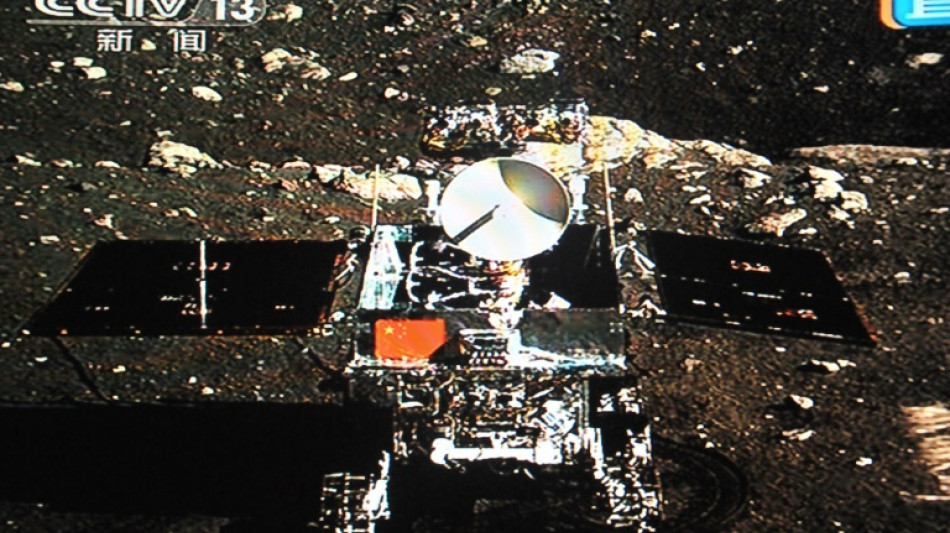
-
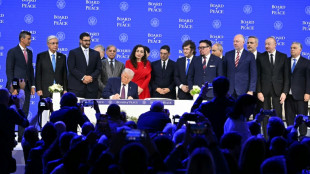 Trump launches 'Board of Peace' at Davos
Trump launches 'Board of Peace' at Davos
-
Stocks rally as Trump drops Greenland tariff threats
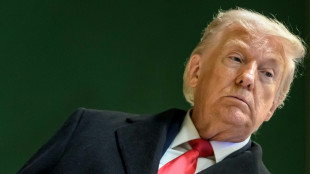
-
 Mercedes unveil 2026 F1 car for new 2026 rules
Mercedes unveil 2026 F1 car for new 2026 rules
-
Djokovic, Sinner plough on in Melbourne, Wawrinka makes history
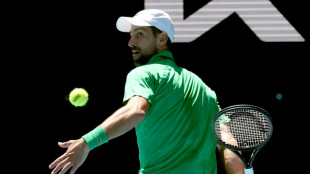
-
 Kitzbuehel's Hahnenkamm, the terrifying Super Bowl of skiing
Kitzbuehel's Hahnenkamm, the terrifying Super Bowl of skiing
-
'Oasis of stability': Madrid becomes luxury housing haven

-
 Swiatek says packed tennis season makes it 'impossible' to switch off
Swiatek says packed tennis season makes it 'impossible' to switch off
-
Sloppy Osaka grinds past 'mad' Cirstea to stay alive at Australian Open
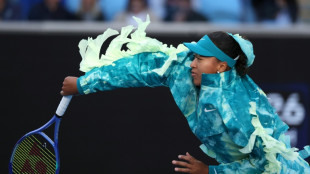
-
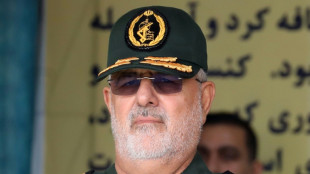 Iran Guards chief says 'finger on trigger', warns US against 'miscalculations'
Iran Guards chief says 'finger on trigger', warns US against 'miscalculations'
-
Imperious Sinner barrels into Australian Open round three

-
 Storms, heavy rain kill 9 children across Afghanistan
Storms, heavy rain kill 9 children across Afghanistan
-
Games giant Ubisoft suffers share price collapse

-
 Exhausted Wawrinka battles on in Melbourne farewell after five-set epic
Exhausted Wawrinka battles on in Melbourne farewell after five-set epic
-
'Too dangerous to go to hospital': a glimpse into Iran's protest crackdown

-
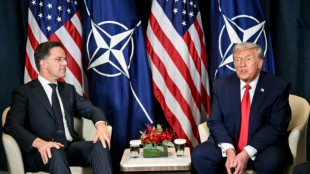 Bruised European allies wary after Trump's Greenland climbdown
Bruised European allies wary after Trump's Greenland climbdown
-
Austrian ex-agent goes on trial in Russia spying case

-
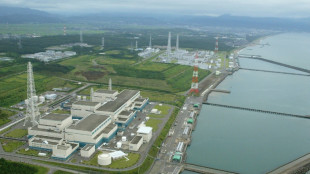 Japan suspends restart of world's biggest nuclear plant
Japan suspends restart of world's biggest nuclear plant
-
Djokovic, Swiatek roll into Melbourne third round, Keys defence alive

-
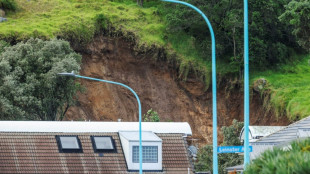 New Zealand landslips kill at least two, others missing
New Zealand landslips kill at least two, others missing
-
Djokovic says heaving Australian Open crowds 'good problem'

-
 Swiatek in cruise control to make Australian Open third round
Swiatek in cruise control to make Australian Open third round
-
Austrian ex-agent to go on trial in Russia spying case

-
 Bangladesh launches campaigns for first post-Hasina elections
Bangladesh launches campaigns for first post-Hasina elections
-
Afghan resistance museum gets revamp under Taliban rule

-
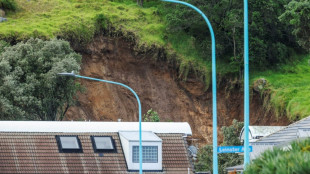 Multiple people missing in New Zealand landslips
Multiple people missing in New Zealand landslips
-
Sundance Film Festival hits Utah, one last time

-
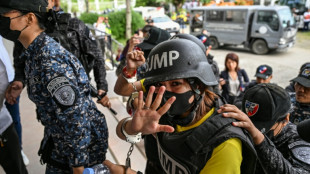 Philippines convicts journalist on terror charge called 'absurd'
Philippines convicts journalist on terror charge called 'absurd'
-
Anisimova grinds down Siniakova in 'crazy' Australian Open clash

-
 Djokovic rolls into Melbourne third round, Keys defence alive
Djokovic rolls into Melbourne third round, Keys defence alive
-
Vine, Narvaez take control after dominant Tour Down Under stage win

-
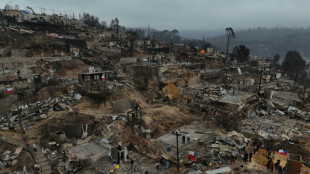 Chile police arrest suspect over deadly wildfires
Chile police arrest suspect over deadly wildfires
-
Djokovic eases into Melbourne third round - with help from a tree

-
 Keys draws on champion mindset to make Australian Open third round
Keys draws on champion mindset to make Australian Open third round
-
Knicks halt losing streak with record 120-66 thrashing of Nets

-
 Philippine President Marcos hit with impeachment complaint
Philippine President Marcos hit with impeachment complaint
-
Trump to unveil 'Board of Peace' at Davos after Greenland backtrack
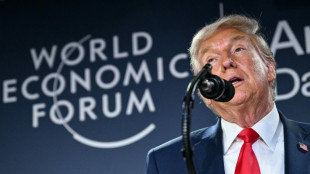
-
 Bitter-sweet as Pegula crushes doubles partner at Australian Open
Bitter-sweet as Pegula crushes doubles partner at Australian Open
-
Hong Kong starts security trial of Tiananmen vigil organisers

-
 Keys into Melbourne third round with Sinner, Djokovic primed
Keys into Melbourne third round with Sinner, Djokovic primed
-
Bangladesh launches campaigns for first post-Hasina polls

-
 Stocks track Wall St rally as Trump cools tariff threats in Davos
Stocks track Wall St rally as Trump cools tariff threats in Davos
-
South Korea's economy grew just 1% in 2025, lowest in five years

-
 Snowboard champ Hirano suffers fractures ahead of Olympics
Snowboard champ Hirano suffers fractures ahead of Olympics
-
'They poisoned us': grappling with deadly impact of nuclear testing

-
 Keys blows hot and cold before making Australian Open third round
Keys blows hot and cold before making Australian Open third round
-
Philippine journalist found guilty of terror financing
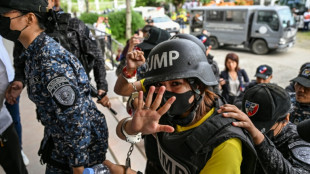
-
 Greenlanders doubtful over Trump resolution
Greenlanders doubtful over Trump resolution
-
Real Madrid top football rich list as Liverpool surge

-
 'One Battle After Another,' 'Sinners' tipped to top Oscar noms
'One Battle After Another,' 'Sinners' tipped to top Oscar noms
-
Higher heating costs add to US affordability crunch


China's space programme: Five things to know
When Chang'e-3 became the first Chinese craft to land on the Moon 10 years ago, it kicked off nationwide celebrations -- and a decade of major successes for a rapidly accelerating space programme.
Since the December 14, 2013 landing, China has built a crewed space station, sent a robotic rover to Mars and become the first nation to make a controlled landing on the far side of the Moon.
Here are five things to know about China's space programme:
- A slow start -
Chinese leader Mao Zedong declared his nation's space ambitions soon after the Soviet Union launched the world's first satellite, Sputnik 1, in 1957.
It took 13 years for China to launch its first satellite Dong Fang Hong, or "The East is Red" -- named after the famous Communist revolutionary song it broadcast from orbit.
It was not until the late 1980s that the programme began to pick up pace, alongside China's ascent into the world's richest and most powerful nations.
Overseen by the military, its secretive space programme's goals became more ambitious. In 1992, it formally began a project to send humans into space.
- 'Taikonauts' -
More than three decades after its first satellite launch, on October 15, 2003, Yang Liwei became the first Chinese to travel into space, and an instant national hero.
With the success of his Shenzhou 5 mission, China became only the third nation after the United States and Russia to demonstrate the ability to launch humans into space.
In total, 20 Chinese astronauts have made the journey into space, including two women. State media have used the term "taikonaut" to describe China's spacefarers.
Many of them have journeyed to Tiangong, China's first long-term space station whose construction was completed last year.
Though much smaller than the International Space Station, it contains living quarters for a rotating crew, robotic arms and airlocks for conducting spacewalks.
- To the Moon -
China has also sent exploration missions to the Moon.
Named after the Moon goddess in Chinese folklore, Chang'e-3 touched down on the surface in 2013, making China only the third nation to successfully land there.
Two other milestones followed. In 2019, China became the first nation to make a controlled landing on the far side of the Moon with Chang'e-4.
A year later, Chang'e-5 brought the first lunar samples to Earth in more than 40 years.
Chinese space authorities have said they plan to land humans on the Moon by 2030, as well as build a lunar base.
- Mars and deep space -
One of the most spectacular successes of the Chinese space programme came in 2021 when its Tianwen-1 mission landed a rover named Zhurong on the surface of Mars.
China is only the second nation after the United States to put a robotic rover on the Red Planet.
Officials have said they aim to send a crewed mission there by 2033.
Aside from landers and orbiters, China is soon expected to launch a space telescope named Xuntian.
Orbiting close to the Tiangong space station, with which it can dock, Xuntian is expected to have a field of view far greater than NASA's Hubble telescope.
- Defence and prestige -
While China says it opposes the weaponisation of space, its policy makers have also identified space as critical to national defence and security.
Its military is a core player in the national space programme, and China is developing spy satellites, anti-satellite missiles and electronic warfare capabilities, according to the US military.
China "sees counterspace operations as a means to deter and counter a US intervention during a regional military conflict", the Pentagon said in a report to Congress this year.
And beyond the direct applications of these technologies, China considers success in space as a major driver of its image as a global power at home and abroad.
"National prestige is perhaps one of the most important, if not the most important, motives driving Chinese space ambitions," said Robert Hines, an assistant professor at the Georgia Institute of Technology in the United States.
"These symbols of increasing international status provide a powerful form of domestic propaganda."
F.Stadler--VB



